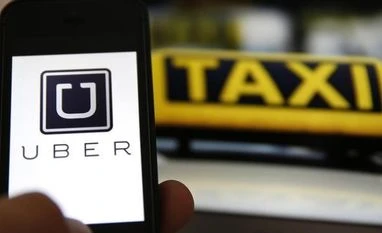The drivers lodged a protest in front of its office in HSR Layout early afternoon protesting against reduction of incentives. Uber has reduced incentives to Rs 100 per trip for a driver who ferries 13 passengers a day from the earlier Rs 250 per trip.
"We saw protests outside our offices by a handful of drivers. Upon investigating, we quickly discovered that these drivers were being instigated by specific groups and associations with vested interests, determined to disrupt our operations towards providing the city of Bengaluru with reliable and safe urban mobility options," Bhavik Rathod, GM Bengaluru, Uber in a statement. "Unfortunately, we have also learnt that these groups, who claim to represent our driver partners, are in fact on a quest to instil fear and uncertainty amongst the driver community, preventing them from earning an honest living on the Uber platform."
Also Read
Taxi aggregators such as Uber and Indian rival Ola have reduced incentives to drivers as it sees more adoption of its services across cities. Uber has operations in 22 cities and is growing its user base by 40 per cent a month, said a company statement.
The firm does not give specific numbers of drivers it has currently but expects to have 200,000 drivers by 2016. In July, the San Francisco-based Uber committed to spend $ 1 billion in India to get more drivers who own commercially registered vehicles or taxis on its network and expand into more cities.
Uber and Ola work on a asset light model by aggregating taxis across cities and allowing customers to choose them on their apps. Both firms offer incentives to get more taxis on their technology platform, while offering similar incentives to encourage more customers to use its services. They charge a commission of 20 per cent of the taxi fare from the drivers.
Last month, drivers of both the platforms protested in Bengaluru against delayed payments. In August, Uber saw drivers staging a one-day hunger strike in Hyderabad over delayed incentives and slow business by drivers.
Ola, which claims market share of 90 per cent, has over 250,000 cabs across 100 cities and aims at one million drivers in couple of years.
)